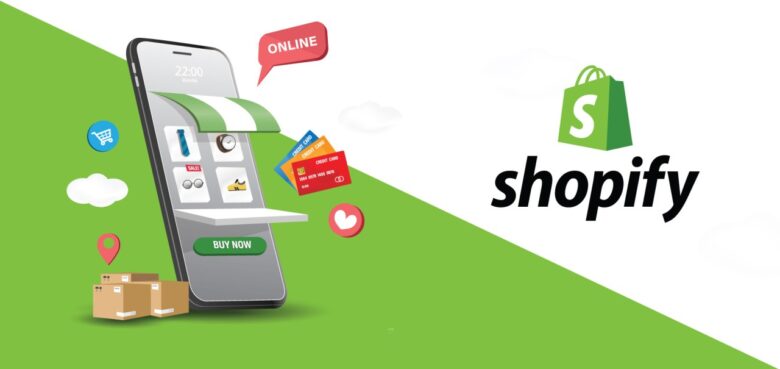In today’s world, where e-commerce has revolutionized the way we buy and sell, Shopify stands out as a game-changer for aspiring entrepreneurs and established businesses alike. Whether you’re a small business owner looking to take your store online or an entrepreneur with a vision to create the next big thing, Shopify offers the tools to bring those dreams to life. This platform is not just about facilitating e-commerce; it’s about empowering individuals to turn ideas into thriving online ventures, backed by a user-friendly experience, vast customization, and powerful integrations.
The Shopify Story: From Snowboards to Global Platform
Shopify’s roots trace back to 2006 when co-founder Tobias Lütke decided to sell snowboards online. Dissatisfied with the existing e-commerce platforms, Lütke, a skilled programmer, decided to create his own solution, which eventually gave birth to Shopify. What began as a solution to a single problem has since evolved into a multi-billion-dollar platform that powers over a million businesses worldwide, enabling entrepreneurs to launch and scale their digital storefronts.
But Shopify’s success isn’t just in its origin story. It’s in how the company has continuously adapted to meet the changing needs of the market. In the early days, e-commerce was primarily the domain of tech-savvy entrepreneurs. Now, Shopify’s intuitive interface allows even those with little to no technical expertise to set up shop with ease, turning anyone with ambition into a potential business owner.
Why Shopify?
At its core, Shopify is a platform designed to simplify the process of launching and managing an online store. But it’s much more than just a website builder or an e-commerce solution. Shopify offers a comprehensive ecosystem that includes everything from marketing and analytics tools to payment gateways and customer service integrations.
Here are some reasons why Shopify has become a favorite among entrepreneurs:
1. Ease of Use
One of Shopify’s biggest strengths is its user-friendly interface. Unlike other e-commerce platforms that require a steep learning curve or advanced coding skills, Shopify provides a straightforward experience. With drag-and-drop functionality and pre-designed templates, setting up an online store can be done in a matter of hours.
Even for individuals with no web development background, Shopify provides step-by-step guides, helpful tips, and a customer support team that is available 24/7. This accessibility opens doors to aspiring business owners who may have once felt daunted by the complexities of setting up an online presence.
2. Customization and Flexibility
Shopify isn’t just about getting an online store up and running; it’s about making that store uniquely yours. The platform offers a wide array of professionally designed themes that can be customized to match your brand’s aesthetic and ethos. Whether you’re aiming for a minimalist look or something vibrant and bold, Shopify gives you the freedom to personalize your store.
Moreover, for those with coding knowledge, Shopify’s HTML and CSS editor allows for deeper customization. This means businesses can truly stand out in a crowded market by creating a store that reflects their vision.
3. Scalability
From small startups to large-scale enterprises, Shopify is built to grow with you. Whether you’re selling a few products locally or managing a vast inventory that ships globally, Shopify’s infrastructure can handle it all. As businesses grow, Shopify offers various plans and features that cater to different stages of growth. This scalability ensures that you won’t outgrow the platform, and with the addition of apps and third-party integrations, businesses can continually expand their functionality.
4. App Ecosystem
Shopify boasts a robust app marketplace that adds versatility to your online store. With over 6,000 apps, entrepreneurs can enhance their store’s functionality with tools for everything from SEO optimization and email marketing to inventory management and dropshipping. These apps allow businesses to integrate solutions specific to their needs without the hassle of custom development.
Popular apps like Oberlo (for dropshipping) or Klaviyo (for email marketing) can drastically improve how businesses interact with customers and streamline their operations. The availability of apps also means that businesses can experiment with new features and services as their needs evolve.
5. Integrated Payment System
Shopify Payments is the platform’s built-in payment solution, which simplifies transactions by supporting multiple payment methods including credit cards, Google Pay, and Apple Pay. For businesses, this means fewer hurdles in processing payments and less reliance on third-party services. Shopify Payments eliminates the need for complicated setups and reduces transaction fees, which can be a significant benefit for small businesses operating on tight margins.
For those wanting more options, Shopify integrates with over 100 external payment gateways globally, ensuring flexibility and convenience for both sellers and buyers.
6. SEO and Marketing Tools
Getting an online store up and running is one thing; attracting customers is another. Shopify is designed with built-in SEO features that help businesses rank higher on search engines like Google. Users can edit meta tags, product descriptions, and alt texts to improve their store’s visibility.
Additionally, Shopify’s marketing tools allow for easy integration with social media platforms, email campaigns, and Google Ads. The platform even offers analytics and reporting to help entrepreneurs track their store’s performance and make informed decisions to optimize growth.
7. Customer Support and Community
Shopify’s customer support is known for being reliable and accessible. The platform offers 24/7 support via phone, live chat, or email. Beyond direct support, Shopify also has a rich community of users who actively participate in forums, share tips, and help troubleshoot common issues. This network of fellow entrepreneurs creates a supportive environment, making it easier for newcomers to navigate the e-commerce landscape.
Shopify’s Role in the Future of Commerce
As e-commerce continues to grow, Shopify is positioned to remain a major player in shaping the future of digital retail. The platform is constantly innovating, with recent developments like Shopify Plus, which caters to high-volume businesses, and the Shopify Fulfillment Network, which offers streamlined logistics and shipping solutions.
Looking ahead, Shopify’s focus on integrating cutting-edge technology such as artificial intelligence, augmented reality, and mobile commerce will keep it at the forefront of innovation. As consumer behavior continues to evolve, Shopify is ready to adapt, ensuring that businesses of all sizes can stay competitive in the digital marketplace.
Conclusion
In an increasingly connected world, Shopify has democratized e-commerce, giving power to the individual entrepreneur. With its user-friendly interface, vast customization options, and powerful tools, it has enabled countless businesses to thrive in the online space. Whether you’re just starting or scaling a multimillion-dollar empire, Shopify provides the infrastructure and support needed to succeed in the digital age.




